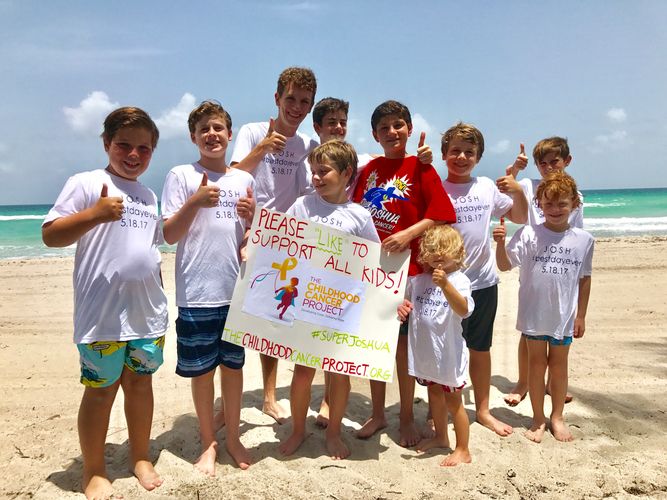THE CHILDHOOD CANCER PROJECT
The Childhood Cancer Project in a nonprofit, 501(c)3 which funds rare, child and adolescent cancer research.
Like the brave children and families that inspire us, we are relentless. Like the brilliant and dedicated scientists pioneering breakthrough research, we are bold. Like the generous community that supports us, we are united. Please join our mission, help us lead the way in treating and defeating childhood cancer.
Cancer is bad enough. But when it affects a child, it is particularly devastating. Because kids deserve a chance to experience life. To laugh and have fun. To be amazed and to dream. To grow up.
Every year, there are over 250,000 new cases of cancer that affect children under the age of 20 worldwide, that's over 700 kids diagnosed with cancer every single day. Despite this, childhood cancer research is severely underfunded.
Unfortunately, we can't count on federal funding to help kids with cancer. Not only has there been an alarming decrease in budgets, but less than 4% of the NCI's federal funding goes towards research for all childhood cancers, combined.
Cancer statistics:
Cancer is the leading cause of death by disease for children in the U.S.
Survival rates can vary depending on the type of cancer.
About 420,000 childhood cancer survivors live in the U.S., with many more around the world.
What causes pediatric cancer?
The causes of childhood cancer are not understood completely. Although adult cancers are usually linked to lifestyle or environmental factors, childhood cancers are different in several ways. Childhood cancers are less likely to be caused by the patient’s environment or lifestyle, even though environmental factors can play a role. The causes are often related to genetic changes. Most often, these genetic changes (called mutations) are thought to occur by chance. In a few cases children are born with genetic changes that increase their risk of getting cancer. Understanding what genetic changes caused a cancer can help doctors diagnose it more effectively.
Treating cancer in children:
Treatment depends on the type of cancer. Treatments often include surgery, chemotherapy or radiation therapy. Sometimes a patient receives more than one of these treatments.The length of time needed for treatment differs depending on the type of cancer. In general, treatments take several months or even years. Researchers and doctors are working on new therapies for children with cancer. Some of these treatments, called precision medicine, target specific genetic changes in the cancer.
After treatment, becoming a long-term survivor:
Once cancer treatment is complete, patients continue to receive follow-up care. This care lasts for many, many years. Cancer treatments can save lives, but can and usually do, cause health issues later in life. It's imperative that childhood cancer survivors take care of their health, have regular checkups and share their cancer history with health care providers.
Our Story
The Childhood Cancer Project was founded by the parents, family members, and friends of Joshua Segal, who began his battle with osteosarcoma, a rare type of childhood cancer in 2015.
We are committed to funding rare child, adolescent, and young adult cancer research and to the development of more effective and less toxic treatments for cancer’s youngest warriors.
Please help us "Develop Cures" and "Deliver Hope."
The Childhood Cancer Project
1835 E Hallandale Beach Blvd, Hallandale, Florida 33009, United States
The Childhood Cancer Project is a Florida nonprofit corporation and is exempt from federal income tax under Section 501(c)(3) of the Internal Revenue Code. Donations made are tax deductible to the fullest extent allowed by law.


